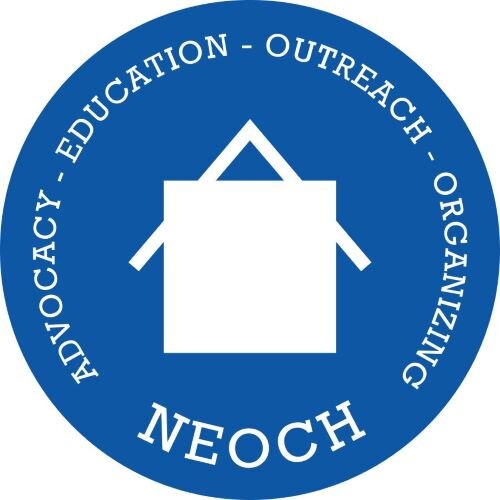Long Awaited "Welfare Reform" Implemented
By Jean Taddie
On March 13, 1996, the United States Secretary of Health and Human Services granted the State of Ohio a waiver that was needed to fully implement welfare reform in Ohio. House Bill 167 was signed by Governor Voinovich in August of 1995. Parts of this welfare reform bill were already implemented beginning January 1, 1996. However, since several changes to Ohio’s welfare system departed from current federal regulations, a waiver from federal standards was sought and then obtained.
House Bill 167 has brought sweeping changes to Ohio’s welfare system. New time limits are in effect that limit an eligible person from collecting Aid to Dependent Children (ADC) to three years out of any five-year period. After three years within any five-year period, a caretaker would lose benefits for her children unless the child was under age five or unless the parent is on a waiting list for any component of the JOBS program.
In order to be eligible to receive any ADC benefits, the caretaker, and various members of her family, are required to sign a contract in which they agree to comply with all ADC requirements, including the JOBS program. JOBS is basically a series of programs set up to get ADC recipients to work at least 20 hours per week. Under this program, county workers assess the employability of each caretaker and then assign them to one of the JOBS programs. If a caretaker does not comply with all of the JOBS requirements, or if she quits a job without “just cause,” then she will be sanctioned which includes the termination of benefits.
Job Club is a program that trains caretakers in strategies and skills of the job search. In Job Club, caretakers practice looking for a job for six weeks or until they find one, whichever comes first. Under the Subsidized Employment Program (SEP), employers who hire SEP participants receive subsidy payments for a portion of those employees’ wages and benefits. The Work Experience Program (WEP) requires ADC recipients to do volunteer work at public or private organizations in return for their monthly ADC payments. The JOBS Education Program requires that ADC recipients who do not have a high school diploma or GED must get one. The program allows two years for the caretaker to obtain a high school equivalency. If the caretaker cannot pass high school after that, ADC benefits would be terminated. The Linking Employers and Recipients to Needs (LEARN) Program requires ADC recipients to work an unpaid internship with a public or private employer for six months, or until she is hired.
According to Virginia Allen, coordinator and student advisor of Cuyahoga Community College’s western campus Student Technical and Academic Re-training (STAR) program, the JOBS program emphasizes work. First priority goes to getting the parent a good job that can support a family. If no steady, well-paying jobs are available, or if the caretaker lacks valuable job skills, then they will be required to accept un-skilled work. “I’m concerned because education is given fifth priority. Many of these parents need more education and training before they can be hired for an occupation that will provide enough income and medical benefits to sustain a family. Moving people into un-skilled, low-paying, dead-end jobs will not help them to end the cycle of poverty,” Allen stated.
Another criticism of Ohio’s new welfare law is that there are not enough jobs, training programs, or day care spaces available. The entrance of new workers into the job market will increase competition for jobs that provide a sustainable income. Caretakers compete with other job seekers who often have more training and education. In addition, lest we forget the children, ADC recipients all have one thing in common — they are responsible for the well being of a child. If the children who live in our state are to be raised without their parent’s supervision, then — at a bare minimum — more day care institutions will be needed to look after them.
Some of the reforms to the welfare system may benefit the ADC recipient. Joe Garcia, Former Director of Entitlement Services for Cuyahoga County explained, “The increase in the disregard could benefit moms who are trying to work their way off of welfare.” A disregard refers to the amount of earned income or automobile value that is allowed before the caretaker’s ADC payments are reduced. The new standard allows county workers to disregard an automobile worth $4,600 or less when calculating benefits. The new law also allows an earned income disregard for the first $250 plus one-half the remaining income that a caretaker earns.
Supporters of the new welfare law also point to tougher child support enforcement as a benefit to ADC recipients. Under it, parents who are late on their child-support payments could have their Ohio Driver’s and Professional Licenses revoked until they pay up. Although this is hailed by supporters as a great benefit for ADC recipients, critics fear that the caretakers and the children will suffer. First, caretakers must help officials track down the delinquent parent and must attend any number of administrative hearings. The child may be forced to submit to genetic paternity testing. Finally, even if the delinquent parent is identified and found, there is no guarantee that they have any income.
Ohio’s new welfare reform laws are a matter of record. However, the enforcement and execution of these laws is just now being tried. It will be months, perhaps years, before we will learn the results that these experimental reforms have on the low-income families and children in Ohio.
Copyright NEOCH and the Homeless Grapevine published June 1996-July 1996 Issue 16
